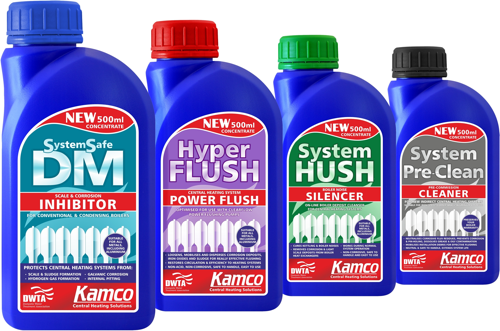Oil Boiler Repairs, Service, Installation & Oil Tank Changes
Specialist Power flushing Services
Local, Reliable & Ready to Help
Plumbing, Heating & Power Flushing
We can help you if you are experiencing…
Fuel wastage
Pump problems
Boiler noises & radiator cold spots
Scaled up systems
Sludge & iron oxide deposits
Why do I need a power flush?
Power flushing is the process by which the central heating system of a house is flushed clean of rust, sludge and any other debris that may have accumulated.
A high flow/low pressure pumping unit is attached to the heating system circulation pump and a series of strong cleansing chemicals are flushed through the entire system. If you're experiencing any sort of clogs in your central heating system, a power flush is what you need to solve your problems. We work quickly and efficiently to bring you a quality service that will leave your central heating flushed and fresh.
Why Power Flushing is better than the Alternatives…
Maintaining a heating system’s cleanliness has long been recognised as important in terms of efficiency, fuel saving, boiler reliability and service life.
Modern high efficiency boilers tend to be more compact and have smaller waterways, which can make them hard to clean. The current drive towards extended boiler warranties of five years and upwards can only be supported if heating engineers play their part in preparing systems properly for the installation of a new boiler, which includes rigorous cleaning.
Some engineers suggest that temporarily fitting a larger magnetic filter into the system and circulating a cleaning chemical for a couple of hours is adequate. The belief that a heating system can be thoroughly cleaned in two hours sounds like an attractive proposition, but as most experienced heating engineers know: if it sounds too good to be true, it usually is.
“The belief that a heating system can be thoroughly cleaned in two hours sounds like an attractive proposition, but as most experienced heating engineers know: if it sounds too good to be true, it usually is.”
There are five good reasons why alternatives to power flushing are unsuitable for most heating systems:
1. It relies entirely on the standard heating system circulator pump to drive the debris to the magnetic filter, which may be many metres away. Circulator pumps are designed to circulate water at a relatively leisurely pace, and this can contribute to heavier particles of debris falling out of circulation and accumulating in areas of extra low flow, such as the base of radiators.
2. Historically, circulator pumps are themselves a 'magnet' for magnetic corrosion debris. The magnetic field generated by the electric motor attracts debris, which then accumulates in pump passageways and in the impeller, dramatically reducing what is already a low flow rate. Most high-efficiency circulator pumps generate a magnetic field at all times – not just when the pump is running.
3. A magnetic filter will not have any effect in cleaning and removing existing debris from the critical primary water side of plate heat exchangers in combination boiler systems, and therefore the heat exchanger would need to be cleaned separately. Less than 15gm of debris can be enough to impede the flow sufficiently for a boiler to ‘lock out’, and this is one of the reasons why boiler manufacturers encourage the use of a filter on the return flow to the boiler - once it has been cleaned!
4. A power flushing magnet can only collect debris passing within a few centimetres and so, without the assistance of a vigorous flow rate generated by a power flushing pump, accumulated deposits will remain static within radiators and pipe work. The situation is complicated by the fact that sludge and corrosion debris is a variable mixture of magnetic and non-magnetic debris, and engineers need to be aware that the non-magnetic debris will not be captured by a magnetic filter and will continue to circulate unless it can be driven from the system to waste by a high flow of water.
5. In a heating system, the pump – and therefore the water – only ever travels in one direction. This leads to areas of low flow, again typically in the base of radiators, where debris is sheltered from the flow of water. Unless the direction of flow can be rapidly reversed, this debris will remain untouched.
So, what’s the answer to getting systems thoroughly clean? Using a filter alone is no substitute for power flushing.
A good power flushing pump will have a much higher flow rate, generated by a large impeller, to give high flow and the force required to dislodge debris. The kinetic energy passed on to impacted debris as water slams into it increases with the square of the water velocity, and this is why a high-performance power flushing pump can remove more debris than other methods of system cleansing. Power flushing pumps should also incorporate an instantaneous flow reversal device to ensure that fast flowing turbulent water penetrates all areas of the heating system and can drive the debris to a point where it can be collected by a magnetic power flushing filter, or in the case of non-magnetic corrosion debris, forcibly discharged to waste.
Using a power flushing pump together with a magnetic filter gives the best of both worlds, reducing the time for a power flush and getting even the dirtiest of systems thoroughly clean.




